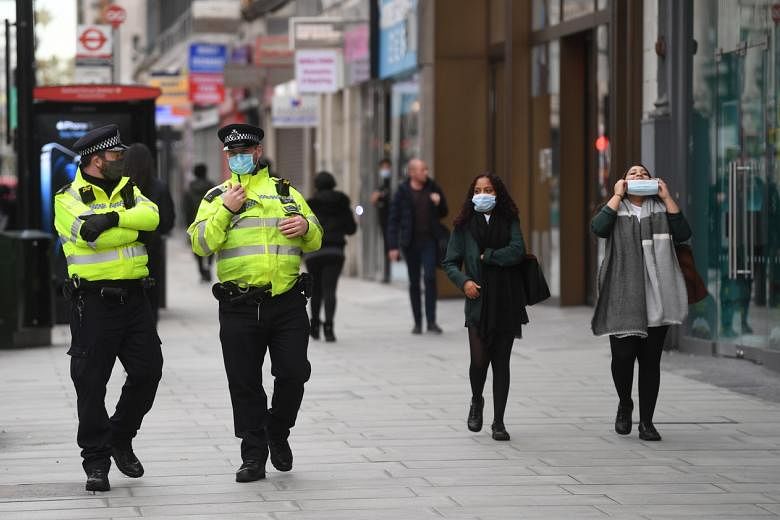LONDON (AFP) - In 2010, friends told Ms Kate Wilson that her ex-boyfriend and confidant Mark Stone, whom she met at an anti-G8 meeting, never existed.
He was in fact a British police officer, whose real name was Mr Mark Kennedy.
He had a wife and children and was a veteran infiltrator of environmental activist groups.
The controversial decades-long practice of Britain's "spy police" finally came under the spotlight as a public inquiry began last week after a five-year wait.
Victims hope it will lift the lid on officers who used stolen identities, including of dead children, and embarked on years-long romantic relationships to infiltrate activist groups.
"It's absolutely awful, it's very, very difficult to describe," Ms Wilson, a 42-year-old nurse, told AFP of her ordeal.
"You have memories and you have an idea of your own life story and what relationships are, and it's totally destroyed."
Lisa, the pseudonym of another of Mr Kennedy's victims who had been in a relationship with him for six years, also discovered his real identity in 2010 after stumbling upon his actual passport.
"He'd been the person that I shared everything with," she wrote on the website of the group Police Spies Out of Lives.
"He was the person who supported me after my father's death. He was the person I went on holiday with."
The website was set up to support women like Lisa who suffered what they said was "sexual and psychological abuse" at police hands. But her story is not unusual.
Undercover cop "Bob Robinson" had a son with Jacqui, a young woman who believed he shared her love of animals, a year after they met in 1984.
He disappeared two years later after his son was born, claiming he was being hunted by the police; in fact, he had just completed his mission.
Jacqui did not learn his true identity until a 2012 newspaper report.
Seeking the truth
Revelations about Britain's "spy cops" and their work have been accumulating over the last decade.
But it was only when Britain's most notorious racist murder case became implicated in the saga that it exploded into a full-blown scandal.
In 2013, former infiltrator Peter Francis said he had spied on the parents of Mr Stephen Lawrence, a young black man killed by a white gang in London in 1993, in order to discredit them.
He said his operation was conducted after a public inquiry found the initial London Metropolitan Police probe into the killing was tainted by "institutional racism".
Then interior minister, later prime minister, Mrs Theresa May established a public inquiry in 2015.
But as a result of years of delays due to the sensitive nature of the evidence and then the coronavirus pandemic, the first hearings did not kick off until last Monday.
Its conclusions are not expected before 2023.
"This investigation will be seeking out the truth," said Mr David Barr, a lawyer with the investigative team.
According to British media reports, at least 139 police officers have infiltrated more than 1,000 groups since 1968, the year that Scotland Yard created the so-called Special Demonstration Squad to monitor protests against the Vietnam War.
The groups are mostly left wing - trade unions, environmental organisations, and anti-racist, pacifist or feminist associations - but the far right was also targeted.
The squad was disbanded in 2008, as was a similar body, the National Public Order Intelligence Unit, two years later.
"Some of those groups, they were so on the fringes, they were so low level that the operations could hardly be justified," lawyer Lydia Dagostino, who coordinates the defences of those targeted, told AFP.
'Emotional manipulation'
The people who were spied on have a "genuine desire... to know the truth... so that it does not happen again," Ms Dagostino said.
Some of the women were "hugely damaged and they'll never get over it", she added.
Police apologised to several women in 2015, compensating them financially, and said this week that sex with "targets" was no longer allowed.
Infiltration is now based on "clear ethical guidelines and a legislative framework", they added.
But that comes as little comfort to Kate, one of the many women who shared Mr Kennedy's life during a deployment that also took him to France, Germany and Spain.
Ms Dagostino said the deliberate "emotional manipulation" of agents was a common tactic, and slammed the hearings, which are not open to the public or broadcast online, as a "state cover-up".
Transcripts are published online but Ms Dagostino said she was angry that dozens of police officers had not been identified, even by their cover names.

